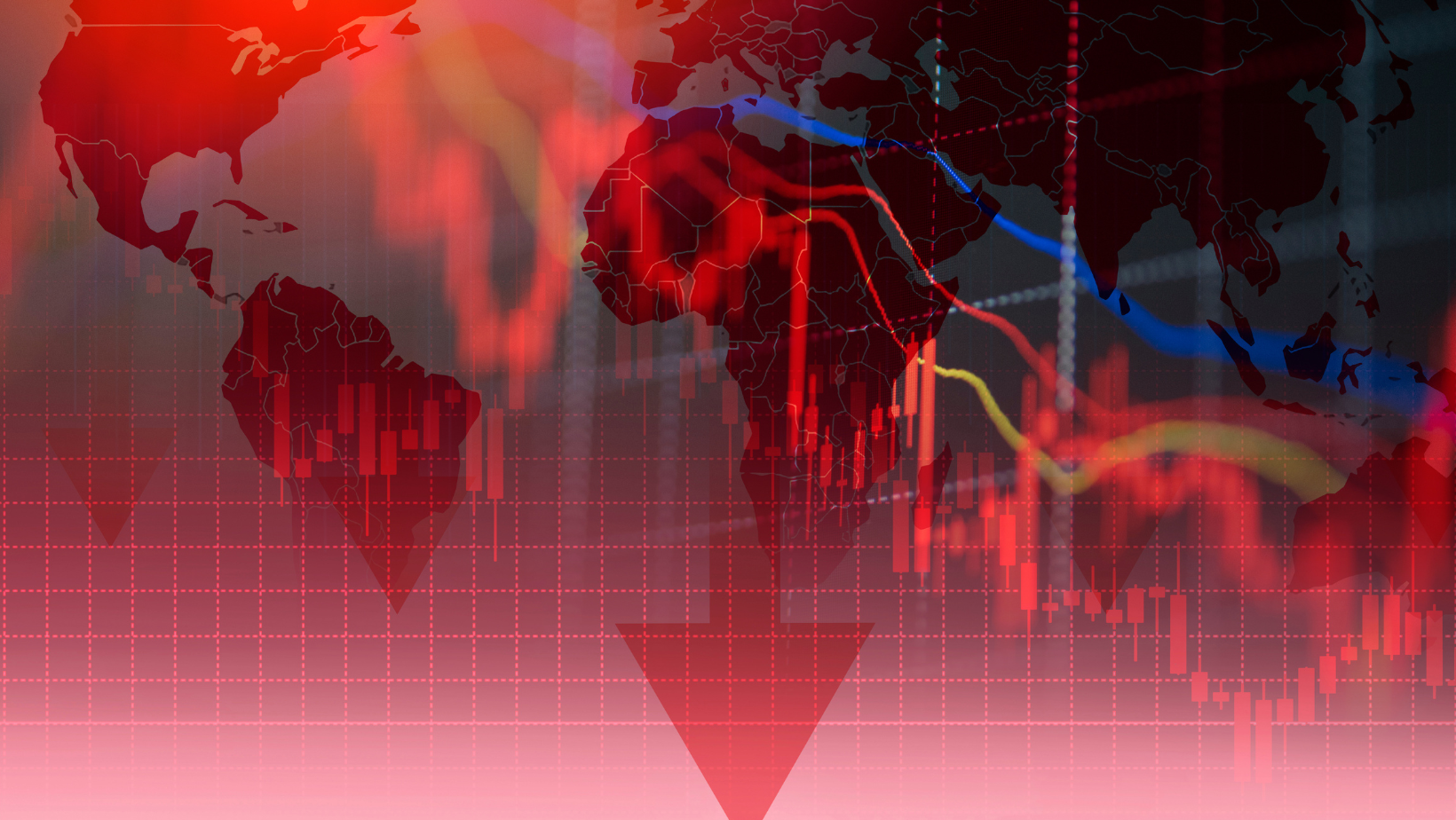Sensex crashes over 1,000 points as US tariffs ignite recession fears
Investments Indian InvestmentsPosted by NewAdmin on 2025-04-04 08:43:45 |
Share: Facebook | Twitter | Whatsapp | Linkedin Visits: 73

The Indian stock market witnessed a significant decline as the Sensex crashed by over 1,000 points and the Nifty fell by 1.5 percent, primarily due to concerns triggered by US President Donald Trump’s announcement of reciprocal tariffs on global trade partners, including India. This development has intensified fears of a potential recession, leading to a widespread sell-off in the Indian equity market. As a result, the Sensex fell by 1,009.07 points, or 1.32 percent, to reach an intraday low of 75,286.29. Simultaneously, the Nifty dropped by 375.7 points, or 1.61 percent, to hit a low of 22,874.40. The combined impact resulted in an erosion of investor wealth by over Rs 9 lakh crore.
The sell-off was broad-based, impacting all sectors with IT, pharmaceutical, and metal stocks being the most affected. Major stocks like Tata Steel, Hindalco, Cipla, Oil & Natural Gas Corporation, and Tata Motors saw sharp declines, falling by as much as 7 percent. Market breadth was distinctly negative with 2,496 shares declining, 834 advancing, and 116 remaining unchanged. The Nifty Midcap 100 index fell over 3 percent, while the Nifty Smallcap 100 slipped by 3.58 percent, erasing gains from the previous two trading sessions.
The IT sector took a particularly severe hit, with the Nifty IT index plunging more than 3 percent. This decline mirrored the losses seen in major US tech stocks overnight, as Wall Street experienced one of its steepest single-day percentage declines in recent years. All ten constituents of the Nifty IT index ended in the red, with Coforge and Persistent Systems leading the losses. Metal stocks also faced significant pressure, with companies like Hindalco, Nalco, Vedanta, and JSW Steel sliding up to 5 percent. Analysts pointed out that the proposed tariffs could have a negative impact on the global demand for industrial commodities, intensifying selling pressure in these segments.
The pharmaceutical sector was not spared either, as Trump's indication of imposing separate tariffs on drug imports triggered concerns. He stated that pharma would be treated as a separate category and hinted at future tariff announcements, further fueling uncertainty. The imposition of a 26 percent "discounted reciprocal tariff" on Indian goods, compared to the existing 52 percent duties levied by India on American products, was seen as an aggressive move that could strain trade relations.
Global market sentiments also remained weak, with Asian markets like Tokyo’s Nikkei and South Korea’s KOSPI experiencing declines of over 3 percent and nearly 2 percent, respectively. Additionally, the Shanghai and Hong Kong markets were closed due to the Qingming festival, limiting regional trading activity.
The negative sentiment in the Indian market followed similar turmoil in the US, where the S&P 500 fell by 4.9 percent and the Nasdaq 100 plummeted by 5.5 percent. The aggressive stance taken by Trump on tariffs has led to heightened concerns of a potential trade war, causing volatility in global equity markets. Devarsh Vakil, Head of Prime Research at HDFC Securities, remarked that the market reaction reflects the growing fear of a global recession fueled by escalating trade conflicts.
Search
Categories
Recent News
- Drug Scandal Shocks Telangana's Medical Community
- Bihar's Medical Marvel: 10kg Tumour Extraction Saves a Life
- Adobe's Firefly: Unlocking Creative AI for Paid Users
- Defence Giant HAL's Shares Plummet Amidst Fighter Jet Competition
- Apollo Tyres Gears Up for India's Cricket Journey
- Drug Scandal: BRS Leader's Kin Questioned, Released
- Dreamliner Radar Glitch Grounds Delhi-Bound Flight
- Deputy CM Pawan Kalyan's State Tour: Prioritising People's Welfare